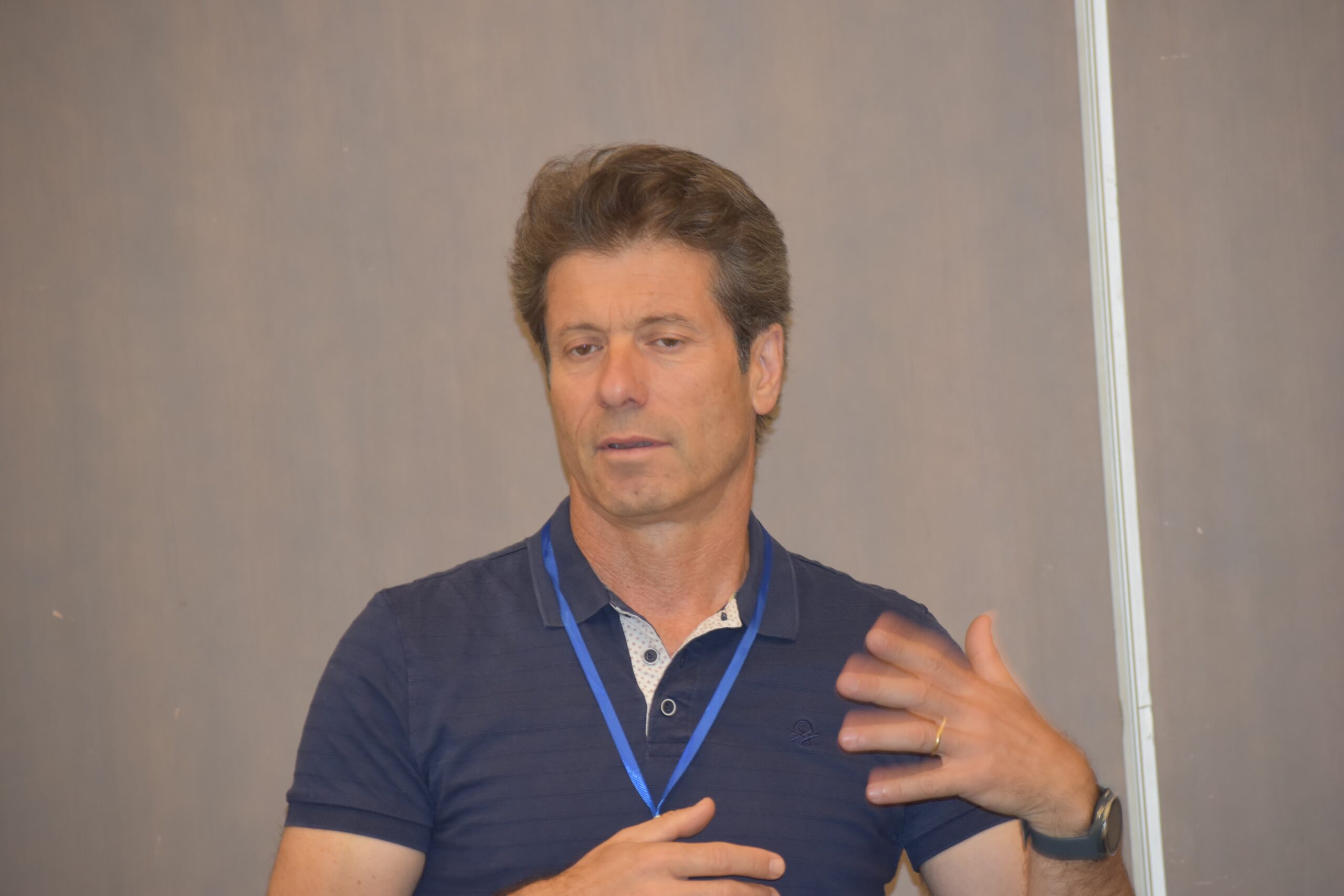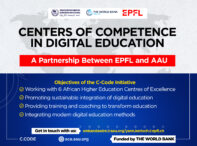Universities Planning Digital Transformation Initiatives Advised to Consider the C-CoDE Model
Effective and learner-centered digital transformation of African higher educational institutions requires a holistic and sustainable approach so that the intended outcomes from higher education can be realized. A well-thought-out digital transformation strategy by African Universities would also ensure that budgets are identified, staff and students are continuously trained, appropriate infrastructure is set up, sustainability and partnership plans are implemented, and supportive institutional policies and strategies are put in place.
When the COVID-19 pandemic struck the world, the infrastructural challenges and limitations in Africa’s higher education system further exacerbated equity & access challenges. Digital Skills among faculty and students were also identified to be a major challenge. Faculty in most of the African Universities had limited or no experience with implementing and using online teaching and learning tools, platforms, and methods. Furthermore, most of the teaching content was also found to be inappropriate for online use. Again, emergency online teaching methods were not supported by institutional policies and practices. Academic faculty and other stakeholders continue to be concerned about quality assurance and recognition of online courses and programs.
One of the plenary sessions during the 7th ACE Impact Regional Workshop, hosted in Cotonou, Benin, was dedicated to the discussion of digital transformation activities that are supported by the Africa Higher Education Centres of Excellence Project (ACE Impact). This session was chaired by Professor Gikiri Thuo, one of the subject matter experts supporting the ACE Impact Project. The session featured a presentation by Dr Dimitris Noukakis from the Swiss Federal Institute of Technology Lausanne who gave a report on the progress of the Centres of Competence in Digital Education (C-CoDE) Initiative being implemented in partnership with the Association of African Universities and six competitively selected ACE Impact Centres since September 2021. The participating ACE Centers are the Africa Centre of Excellence on Technology Enhanced Learning (ACETEL) at the National Open University in Nigeria; the Africa Centre of Excellence for Sustainable Power and Energy Development (ACE-SPED) at the University of Nigeria Nsukka; the Africa Center of Excellence in Population Health and Policy (ACEPHAP) and the Center for Dryland Agriculture (CDA) at Bayero University in Kano. The others are the Regional Center for Energy and Environmental Sustainability (RCEES) at the University of Energy and Natural Resources in Ghana; CEA-Centre d’Etudes, de Formation et de Recherche en Gestion des Risques Sociaux (CEFORGRIS) at the Université Joseph Ki-Zerbo in Burkina Faso and Centre d’Excellence Africain en Sciences, Mathématiques, Informatique et Application (CEA-SMIA) at the Université d’Abomey-Calavi in Bénin.
Dr. Noukakis said that the C-CoDE model has been well thought-out to address all the dimensions of digital transformation in higher education and to ensure that academics are well trained to drive the transformation themselves. Thus, universities planning to digitally transform their institutions are encouraged to consider the adoption of this model.
Dr. Noukakis explained that the six participating universities are being supported to strengthen themselves towards establishing Centers of Competence in Digital Education on their campuses to promote the sustainable integration of digital education in their teaching processes, as a means of strengthening the quality of teaching as well as the competencies of graduates.
He explained that the C-CoDE concept facilitates the digital transition of Higher Education by addressing key underlying issues such as the adaptation of pedagogy to the digital environment, provision of infrastructure and building of technical competences. The objective of the C-CoDE initiative is to sustainably integrate digital education in African universities. The expected outcome from C-CoDE is strengthened quality education and skilled graduates. Dr. Noukakis said that the C-CoDE model proposes that the solution to digital transformation is to “place all the needed skills, competences and infrastructure under one roof”. The outputs of the C-CoDE concept are resident experts in digital education; a pool of faculty members trained in and championing digital education, and conducive environments/places to design, produce and distribute digital educational content.
Dr. Noukakis said that there were already significant outputs from the C-CoDE initiative since its launch in September 2021. Using the ADDIE (Analysis, Design, Development, Implementation, and Evaluation) pedagogical model, 18 digital education experts were trained and required to convert one of their courses for online delivery so that they learn the practical skills. Two cohorts, one English and the other French, went through three online workshops that applied the flipped classroom style and tutoring teaching methods. The fourth workshops were held as face-to-face activities in Abuja and Cotonou.
A total of 180 faculty members from the six participating universities are being trained between January 2022 to July 2022, using four facilitated Digital Education Masterclass Small Private Online Courses (SPOCs). Twelve Technicians are being trained on-site and would also receive two weeks hands-on training so that they are able to support the digital education studios.
Reflecting on some of the key next steps in relation to the C-CoDE initiative, Dr. Noukakis intimated that the finalization of construction works for the digital education studios in the participating universities is programmed to be completed in July 2022, whilst the procurement of information technology and multimedia equipment is planned for August 2022. Plans are underway, to inaugurate the six C-CoDE centres in September 2022.
Dr. Noukakis concluded by reporting that the training in Digital Education was highly appreciated by the participating academic faculty and institutions. Tutoring and facilitation were also recognized as being very important when training students online. Similarly, the need to add more modularity to the trainings to accommodate busy academics through shorter modules was also mentioned. Finally, he said that it is important to engage trained faculty in digital course development and to align the sustainability plan of the C-CoDE initiative with universities’ strategies.
During the question-and-answer session, the participants sought to find out how the mindsets of stakeholders could be transformed to accept digital education. In response, Dr. Noukakis advised that motivating academic faculty and students could not be achieved “by just introducing technology”. However motivating people to transform their teaching methods could be achieved through training them and demonstrating the benefits of digital education to the faculty and students. He said that the faculty must understand the whole cycle and must be fully engaged. In addition, institutional policies must be changed to accommodate the adoption of digital education and include learner-centric approaches to digital transformation to ensure the success of the implementation of digital education. Participants at this session were asked to reflect on who was at the center of focus in their campus digital transformation initiatives because campuses need to be organic places that respond to the needs of students.
Written By: Ms Nodumo Dhlamini, Director ICT Services, Communications & Knowledge Management at AAU



